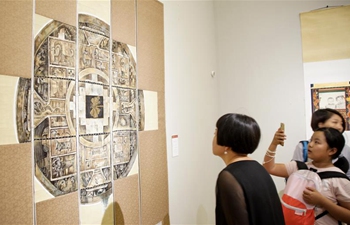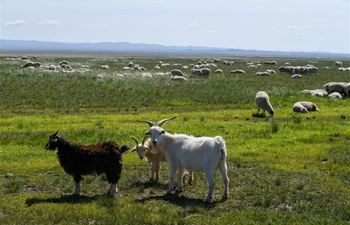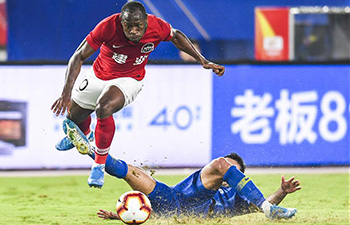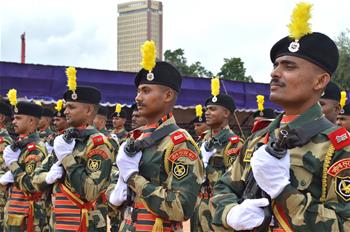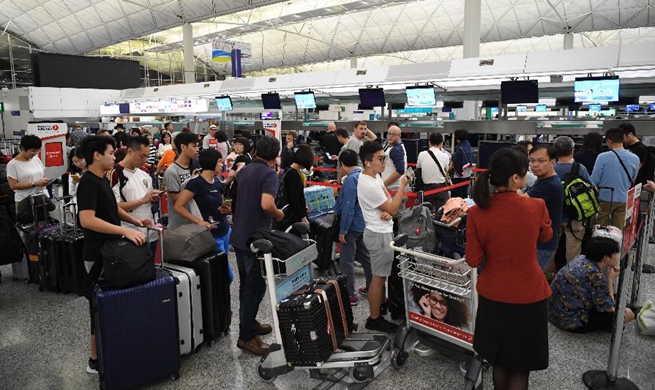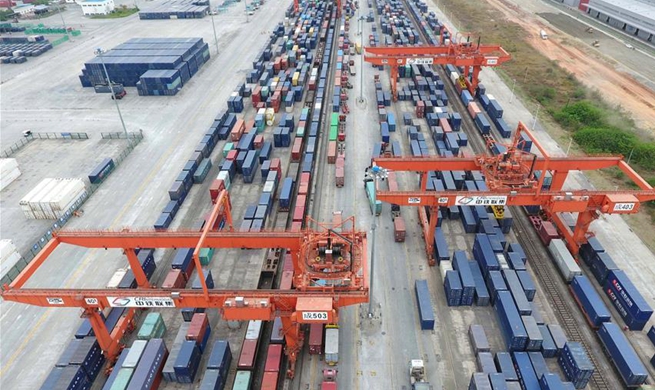by Dana Halawi
BEIRUT, Aug. 16 (Xinhua) -- Amid recent increased pressure against Hezbollah and its financial activities in Lebanon and abroad, the United States is expected to have exerted pressure on Lebanese Prime Minister Saad Hariri during his visit to Washington this week, analysts said.
"The U.S. will make it clear to Hariri that the Lebanese government should be strong enough to reduce Hezbollah's influence by not implementing all decisions taken by the party," Rajeh Khoury, a political analyst, told Xinhua.
"Hezbollah is active in the government and the parliament and this is what concerns the U.S.," Khoury said.
"The United States does not want the Lebanese government to go into any political directions that contradict U.S. policies in the region," Khoury added.
Samir Atallah, also a political analyst, believes Washington will convey a message to Hariri that his weakness in facing Hezbollah will not be tolerated anymore.
Atallah argued that the United States is helping Hariri by imposing sanctions against Iran to weaken Tehran and its proxies in the region, namely Hezbollah.
"These sanctions, in America's views, should make Hariri stronger," he said.
Hezbollah's officials and its allies have always been criticizing the United States for interfering in Lebanon's internal affairs.
Hariri started earlier this week a visit to the United States to meet with U.S. Secretary of State Mike Pompeo and a number of U.S. officials to discuss the situation in Lebanon and bilateral ties between the two countries, said a statement by Hariri's office on Monday.
Pempeo and Hariri held a joint press conference on Thursday night after a meeting to conclude the Lebanese prime minister's visit.
"Lebanon is threatened by Iran and its proxy Hezbollah," Pempeo said at the press conference.
The U.S. officials have, on many occasions, voiced their support for Lebanon and the Lebanese legitimate institutions, while adopting a stance against Hezbollah which is listed as a terrorist group by Washington.
The United States expressed great concerns after Hezbollah succeeded in controlling three of the 30 ministries in Hariri's new cabinet, including the Health Ministry which has the fourth largest budget in the state.
Moreover, Hezbollah won more than 70 of the 128 seats in the Lebanese parliament in an election held last year while Hariri, who is backed by the West, lost more than one third of his members of parliament.
Since then, pressure has further grown against the Shiite Lebanese party.
On July 9, the U.S. Treasury Department named three Hezbollah officials, members of parliament Mohammad Raad and Amin Sherri as well as Security Chief Wafiq Safa, as "specially designated global terrorists," effectively cutting them off from the international financial system.
According to former Lebanese Ambassador to the United States Riad Tabbarah, the maximum the United States will do is imposing sanctions against those directly linked to Hezbollah.
"The U.S. usually takes measures restricted to sanctions against people who are directly linked to Hezbollah without aiming at hurting Lebanon's banking sector and the country's economy," he explained.
Similarly, Atallah said the U.S. pressure will not reach the extent of damaging the country's economic and financial sectors.
"We should always remember that Lebanon is hosting a big number of Syrian refugees and it is not in the benefit or interest of any European countries or the U.S. to hit Lebanon financially," he added.
Hariri announced on Thursday after his meeting with the World Bank that the bank has promised its continuing support for Lebanon.
In fact, analysts believe Hariri, even if pressured by the United States, is probably unable to limit Hezbollah's power in the country.
"Hariri will not be able to weaken Hezbollah because the Shiite party is in alliance with the president and his son-in-law, head of the Free Patriotic Movement (FPM) and Foreign Minister Gebran Bassil," Khoury said.
"There exists a political settlement between Hariri and FPM which led to the election of Michel Aoun as president and brought Hariri back to the premiership," he added.





